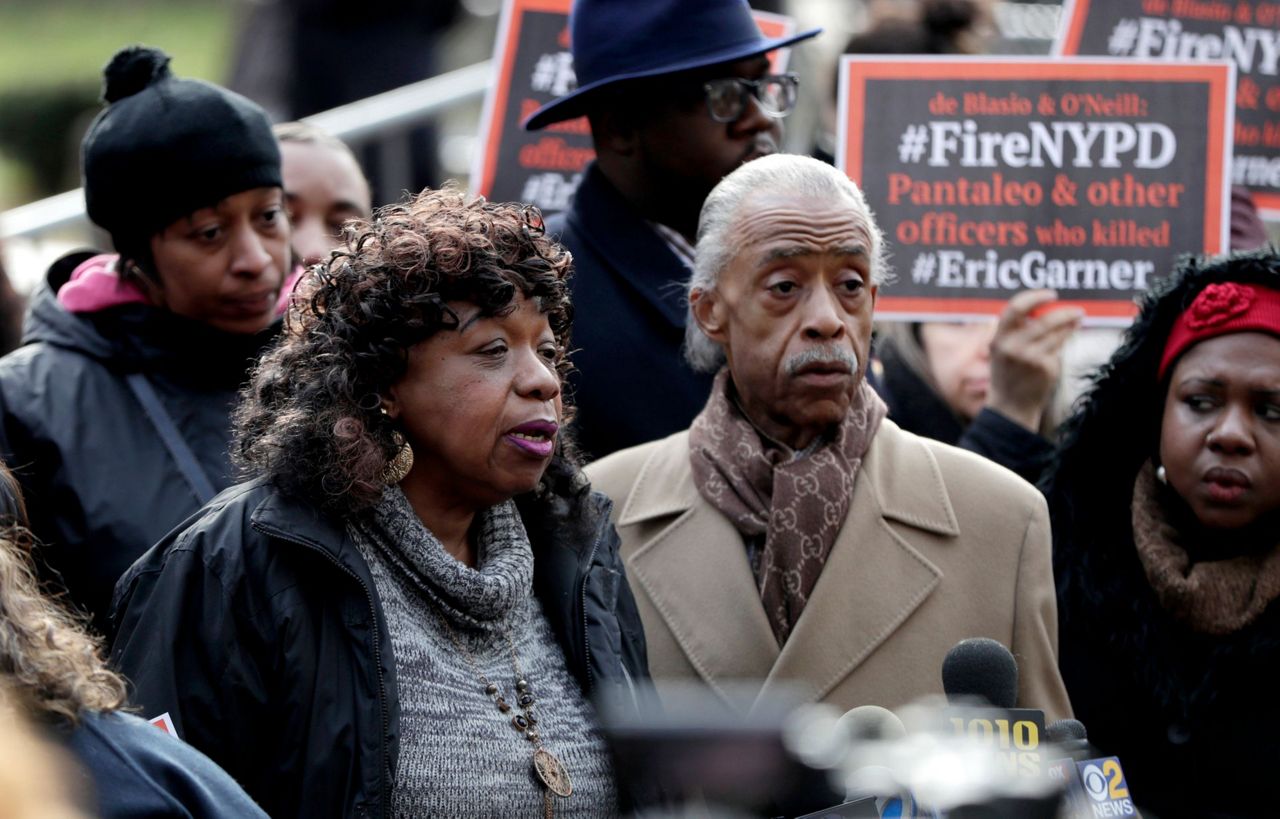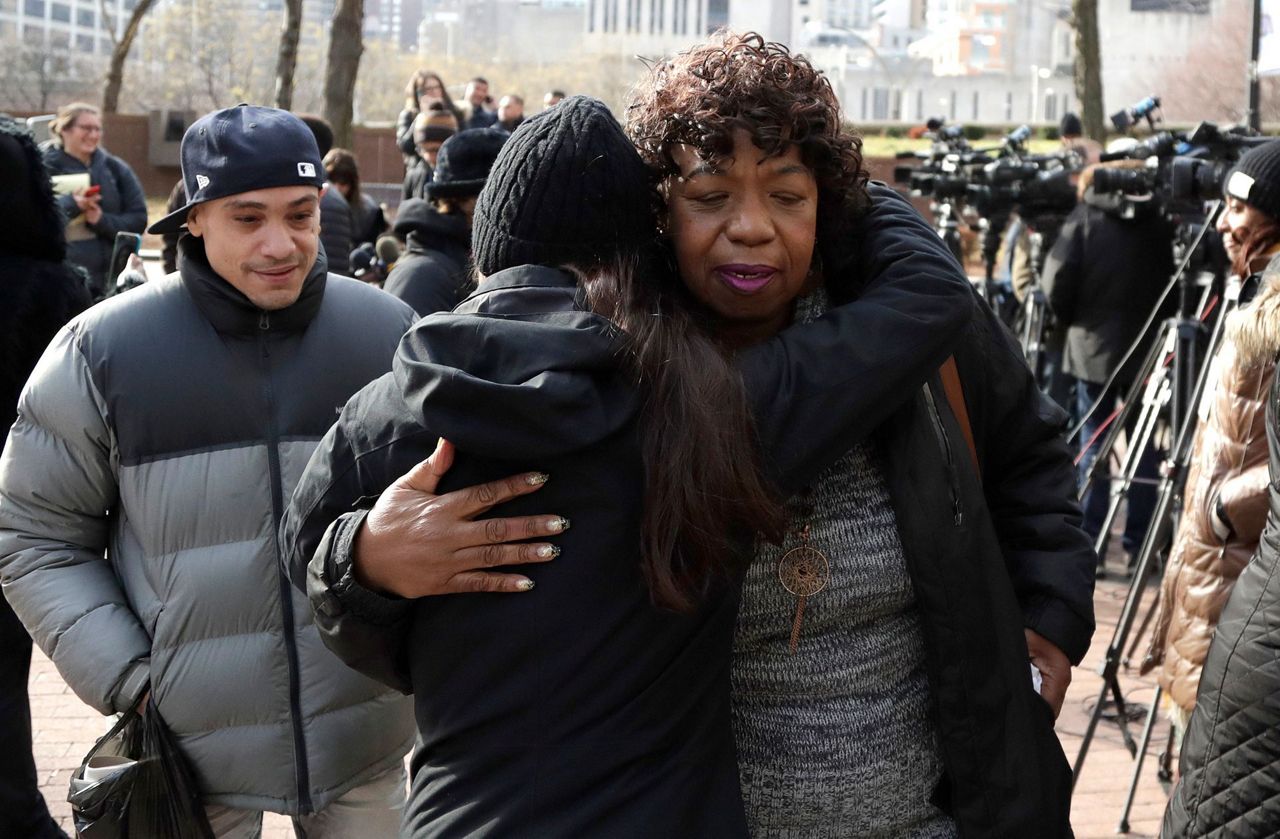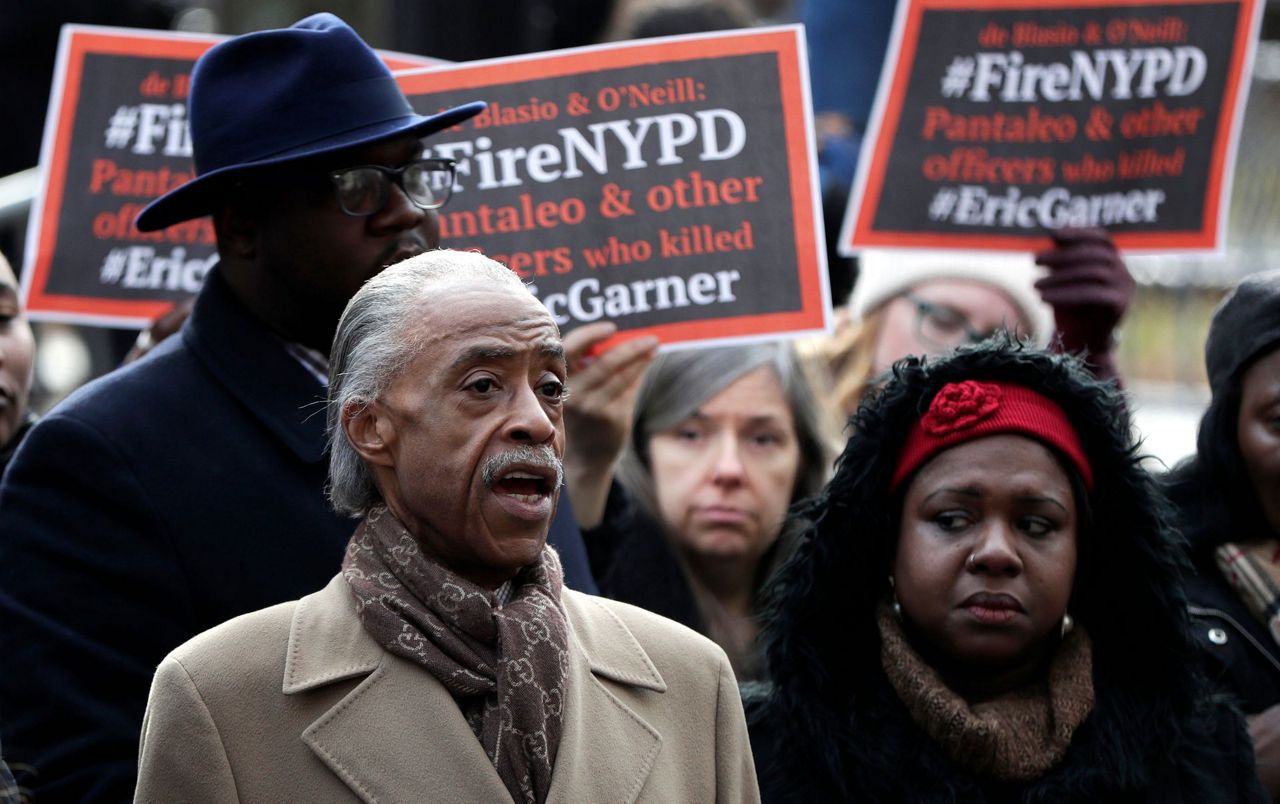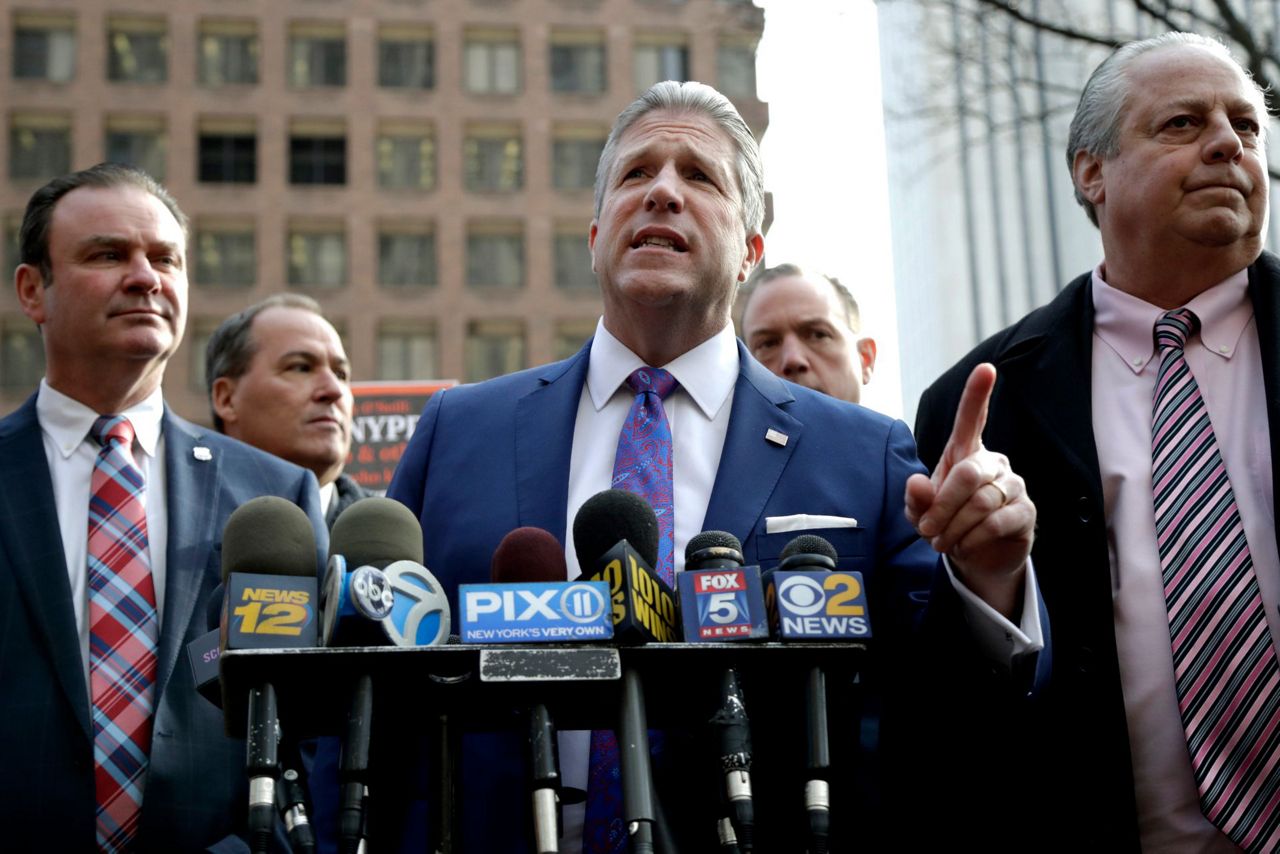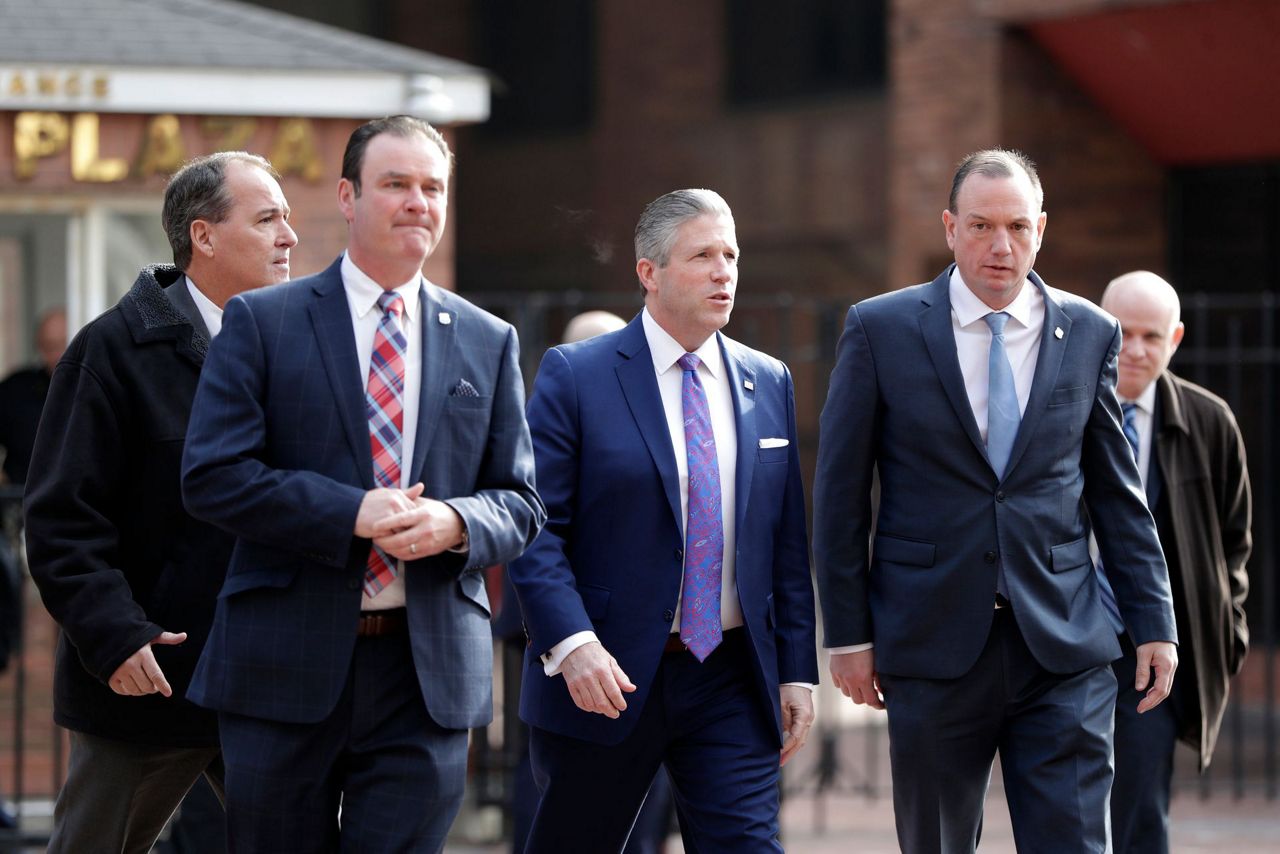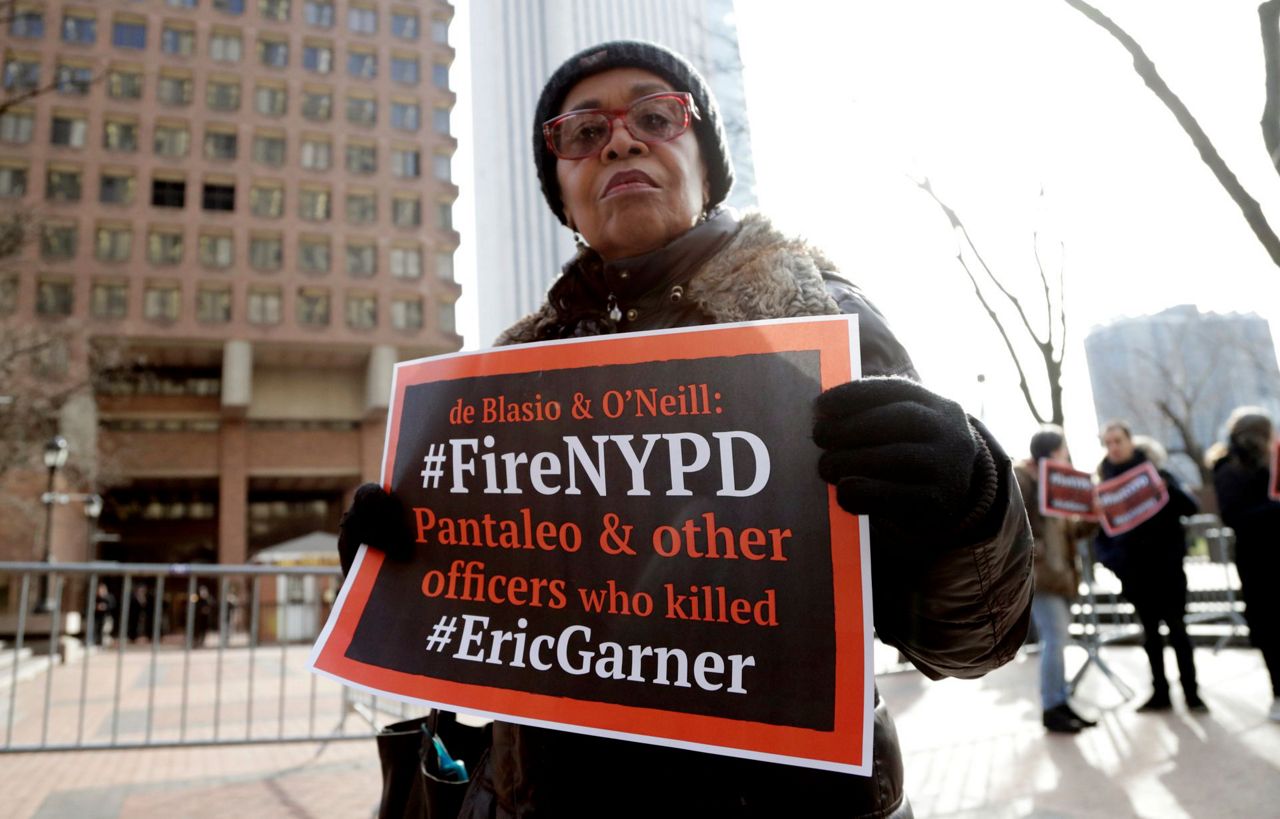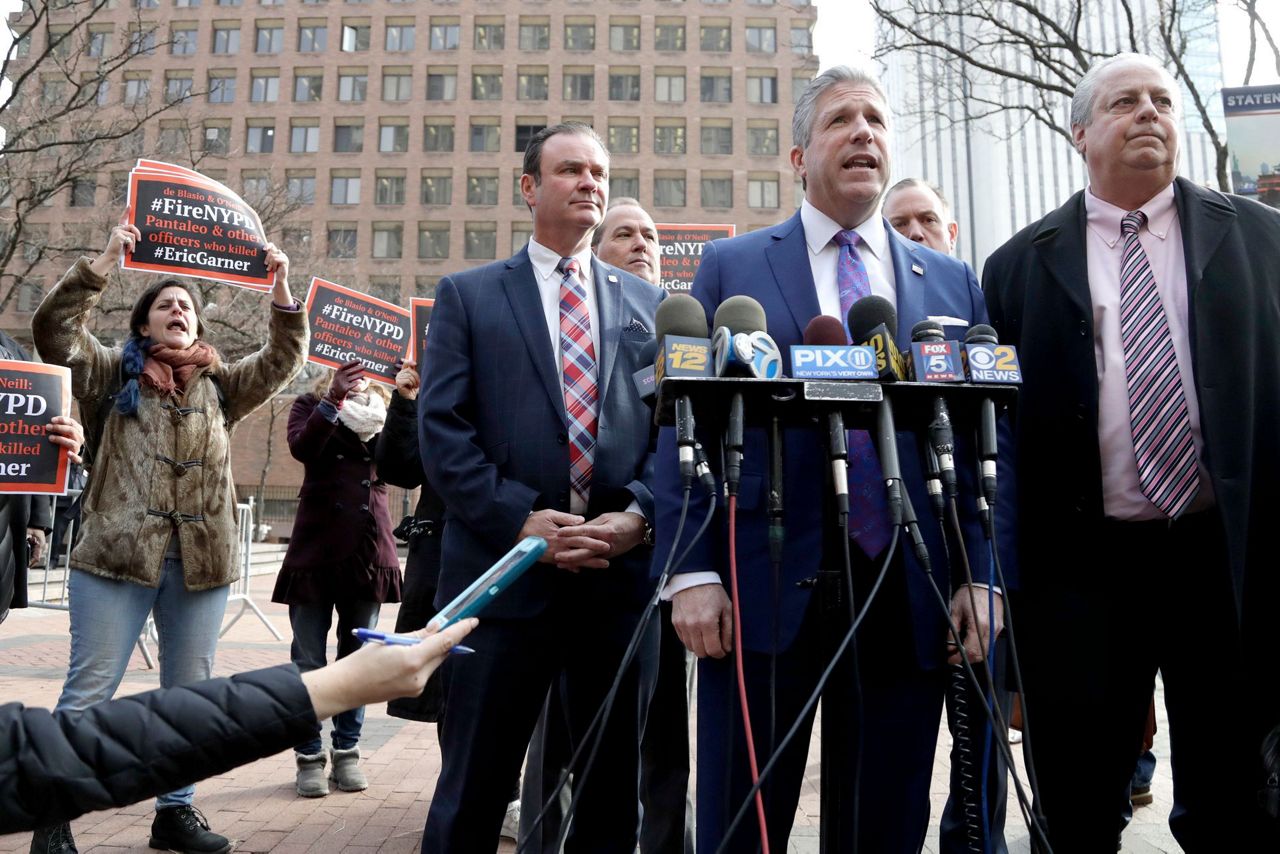NEW YORK (AP) — A New York City police officer accused in the chokehold death of an unarmed black man will face an NYPD disciplinary trial next May - nearly five years after the man's pleas of "I can't breathe" became a rallying cry against police brutality, an administrative judge said Thursday.
The judge rejected demands from Daniel Pantaleo's lawyer to delay the officer's department trial in the death of Eric Garner until July, when time runs out for federal prosecutors to file civil rights charges against him.
The NYPD trial will start May 13 and could take about two weeks, the judge said.
Pantaleo, who is white, is charged with reckless use of a chokehold and intentional use of a chokehold in Garner's July 2014 death in Staten Island.
Garner, a 43-year-old father of six, could be heard on an amateur video shouting "I can't breathe!" as Pantaleo placed him in an apparent chokehold, which is banned under police department policy, after officers stopped him for selling untaxed cigarettes.
If convicted, the 33-year-old Pantaleo could face punishment ranging from the loss of vacation days to firing from the department. He was stripped of his gun and badge and placed on desk duty after the incident.
Pantaleo's lawyer, Stuart London, said the officer used a takedown move taught by the police department, not a banned chokehold, and will be vindicated. After a brief hearing, his union issued a statement blaming the 350-pound Garner's poor health and resisting arrest for his death.
Pantaleo, wearing a dark suit, didn't speak during the brief hearing at police headquarters and lingered in the trial room with his head down as a crowd, including Garner's relatives, emptied out.
"I felt sort of numb being in the same space as my son's murderer," said Garner's mother, Gwen Carr. She wants the police department to fire Pantaleo and others who were involved in her son's arrest.
Garner, who had asthma, suffered a heart attack in an ambulance and was pronounced dead at a hospital.
A grand jury declined to indict Pantaleo in December 2014. The Civilian Complaint Review Board, the police watchdog agency prosecuting his disciplinary case, is seeking transcripts of that proceeding.
"This case demonstrates the danger that is inherent in prejudging incidents absent all of the information that must be considered in order to come to a truthful and accurate conclusion," union president Patrick Lynch said in a statement.
Lynch then attacked Garner's health, saying it was so poor that it was "highly likely" he would've died if he had decided to flee police instead of refusing to be handcuffed. "The exertion and stress would have overcome his already seriously ill body and would have resulted in his death," he said.
Pantaleo's union, the Patrolmen's Benevolent Association, said Thursday that the officer had used "the least amount of force necessary" and that Garner couldn't have been subjected to a chokehold because his autopsy showed that his windpipe and hyoid bone were intact — an assertion the medical examiner said was wrong.
The city's Office of Chief Medical Examiner pushed back at Lynch's comments, saying that it stood by the original forensic investigation and determination, which found Garner died from injuries including neck compression.
"It is false that crushing of the windpipe and fracture of the hyoid bone would necessarily be seen at autopsy as the result of a chokehold," Dr. Barbara Sampson, the chief medical examiner, said in a statement.
The NYPD decided in July to go forward with disciplinary proceedings, saying it was running out of patience with the federal government's indecision about whether to bring a criminal case.
Justice Department spokeswoman Kelly Laco declined to comment Thursday on the status of the department's investigation into the incident.
Police Commissioner James O'Neill, who has the final say on officer discipline, said Tuesday: "We want to get this done."
__
Follow Sisak at twitter.com/mikesisak
__
Michael Balsamo in Washington contributed to this report.
Copyright 2018 The Associated Press. All rights reserved. This material may not be published, broadcast, rewritten or redistributed.



